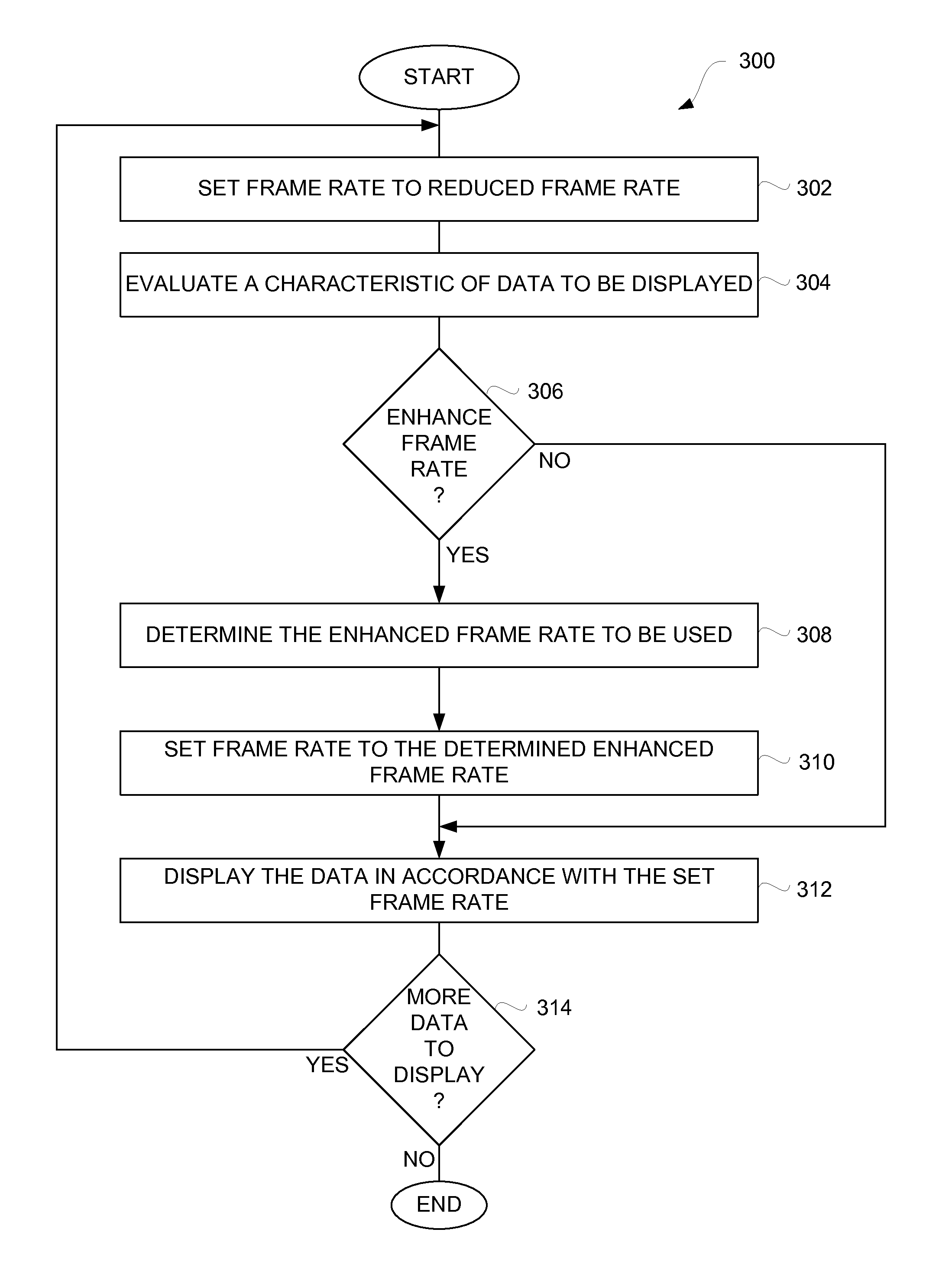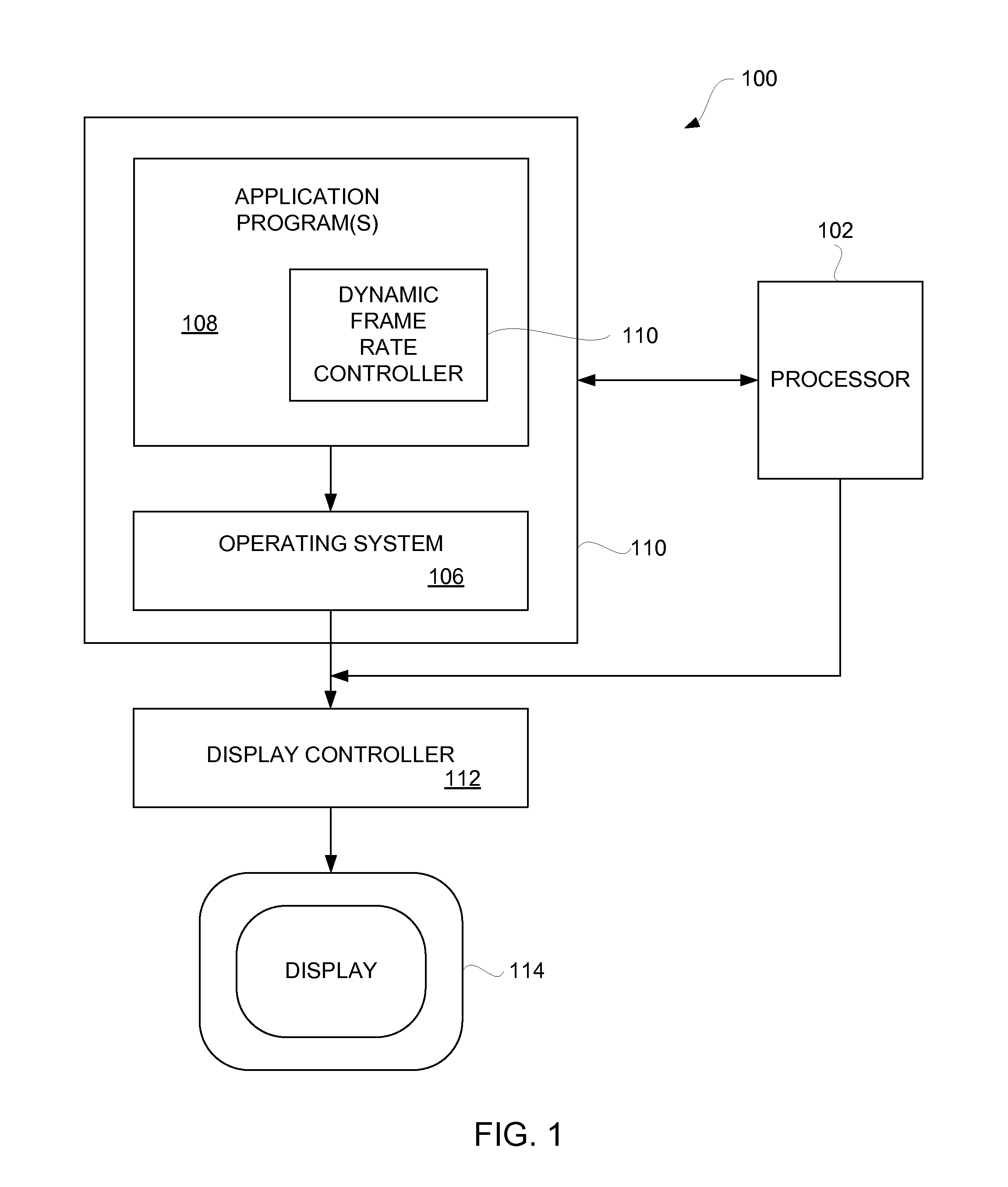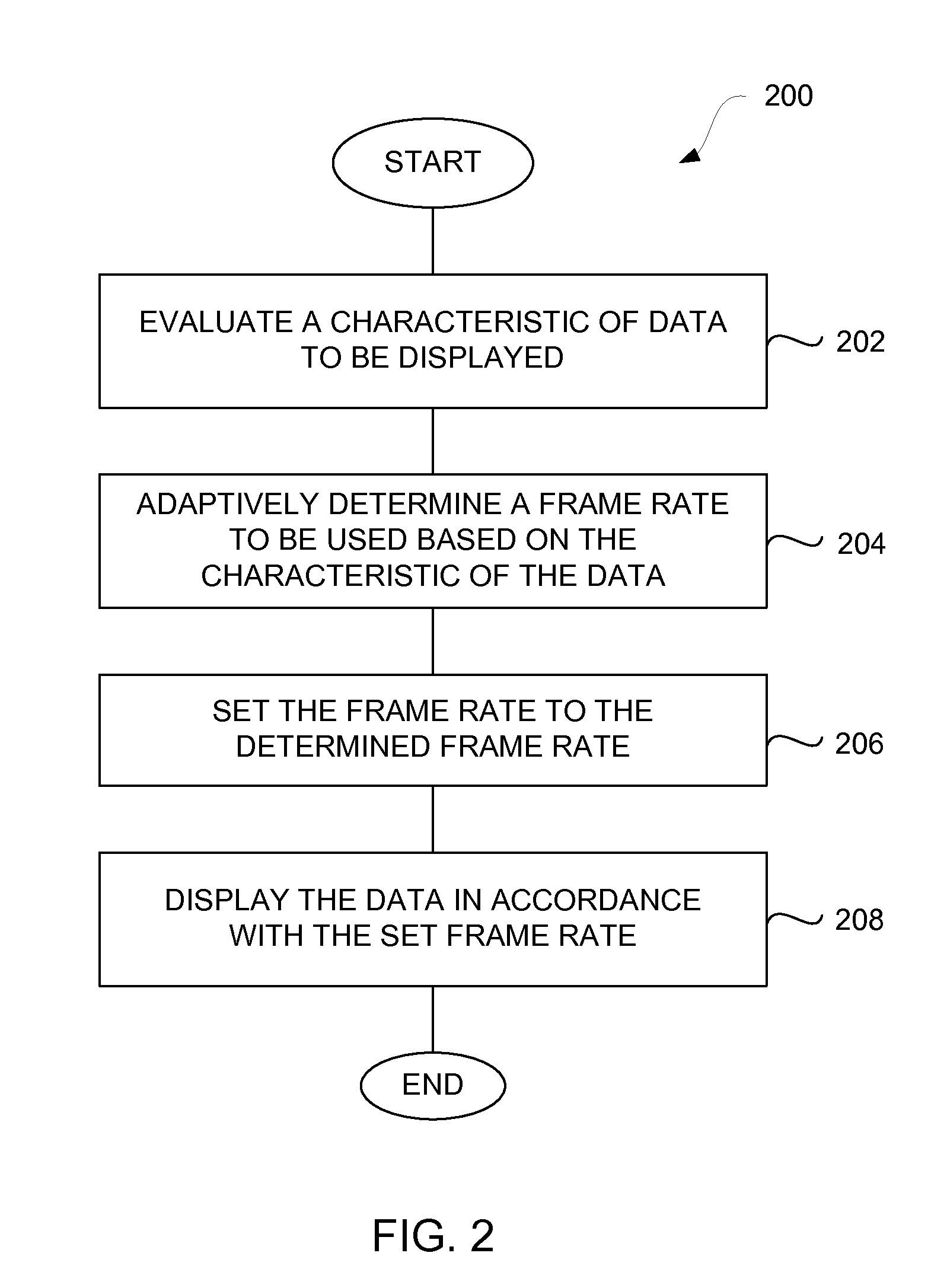Adaptive frame rate control for power savings
a frame rate control and power saving technology, applied in the direction of power supply for data processing, instruments, computing, etc., can solve the problems of power consumption of portable electronic devices to produce and display each frame, high power consumption of video or animated content, and relatively fast consumption of stored power of portable electronic devices. achieve reasonable display quality and reduce power consumption
- Summary
- Abstract
- Description
- Claims
- Application Information
AI Technical Summary
Benefits of technology
Problems solved by technology
Method used
Image
Examples
Embodiment Construction
[0017]Embodiments disclosed herein pertain to power conservation for electronic devices. According to one embodiment, power conservation can be achieved through adaptive frame rate control for a display associated with an electronic device. The frame rate is able to be controlled so as to adapt to a frame rate that is adequate for the display task. Since the display often times displays content that is not very dynamic, the frame rate in such situations can be controlled to use a reduced frame rate, which thereby reduces power consumption. However, when the display displays content that is substantially dynamic, the frame rate in such situations can be controlled to use an enhanced (or not reduced) frame rate, which ensures reasonable display quality.
[0018]According to one embodiment, an application program operating on an electronic device can control content to be displayed. The application can evaluate whether a reduced frame rate is acceptable from a display quality perspective....
PUM
 Login to View More
Login to View More Abstract
Description
Claims
Application Information
 Login to View More
Login to View More - R&D
- Intellectual Property
- Life Sciences
- Materials
- Tech Scout
- Unparalleled Data Quality
- Higher Quality Content
- 60% Fewer Hallucinations
Browse by: Latest US Patents, China's latest patents, Technical Efficacy Thesaurus, Application Domain, Technology Topic, Popular Technical Reports.
© 2025 PatSnap. All rights reserved.Legal|Privacy policy|Modern Slavery Act Transparency Statement|Sitemap|About US| Contact US: help@patsnap.com



